Ecuadorian Youth Draw a Future Free of Chemicals and Rooted in Nature
Across the globe in December, we honor International Mountain Day (December 11), International No Pesticide Use Day (December 3), and World Soil Day (December 5). These days bring awareness to the critical role of soil, mountains, and regenerative agriculture in sustaining life.
This year, youth storytellers from our local partner EkoRural in Ecuador stepped forward with thoughtful drawings that inspire us to reconnect with the earth. Their art calls out harmful agricultural practices, depicts the importance of soil health, and honors the mountains that nestle their communities.
What International No Pesticide Use Day means for Ecuadorian youth
Saul Guala’s striking artwork for Día del No Uso de Agroquímicos (International No Pesticide Use Day) highlights a critical issue for youth and communities in Ecuador’s Andes: the widespread use of pesticides and chemical fertilizers. While these chemicals are promoted for quick agricultural gains, they come at a high cost.
In the Andes, agrochemicals threaten traditional chakra farming systems and harm the soil, water, and biodiversity that families depend on. For youth like Saul, this reality is personal and directly concerns his land, health, and future.
The International No Pesticide Use Day calls for a shift toward organic and agroecological practices. By avoiding harmful chemicals and working with nature instead of against it, farmers can restore soil health, protect clean water, and preserve biodiversity. For young people in Ecuador, this means building a future where agriculture sustains both their communities, cultural heritage, and the planet.
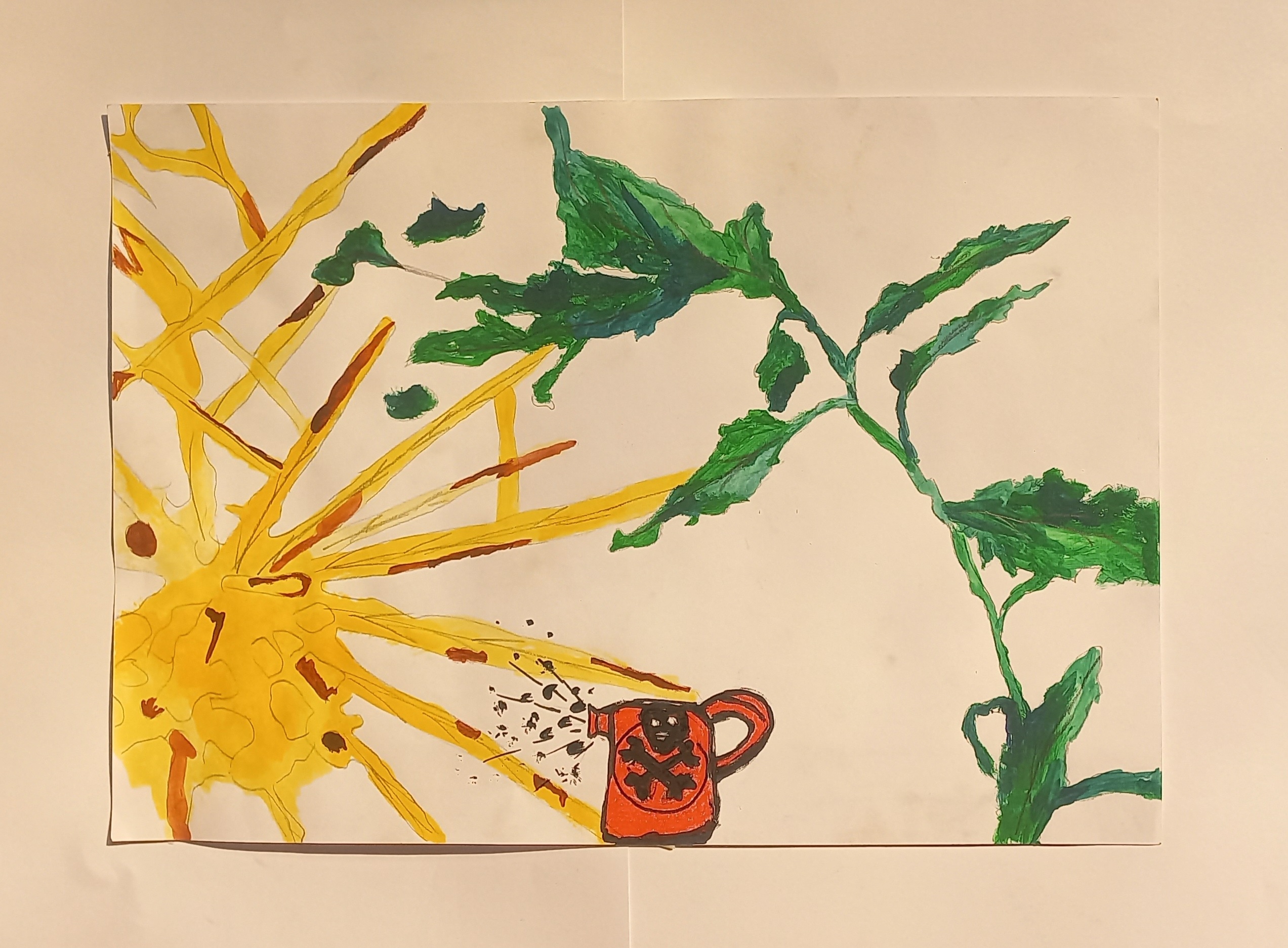
Celebrating World Soil Day with art
Jhonny Cutiopala’s drawing titled “Cuida el suelo porque nos da vida” (Take care of the soil because it gives us life), represents soil’s vitality. Beneath a thriving tree, Jhonny illustrates a web of roots nourished by water, earthworms, and organic matter. The surface blooms with flowers and life—nature’s response to fertile, chemical-free soil.
His art echoes the message of World Soil Day, a day dedicated to raising awareness about soil erosion, degradation, and the critical need to protect the earth beneath our feet.
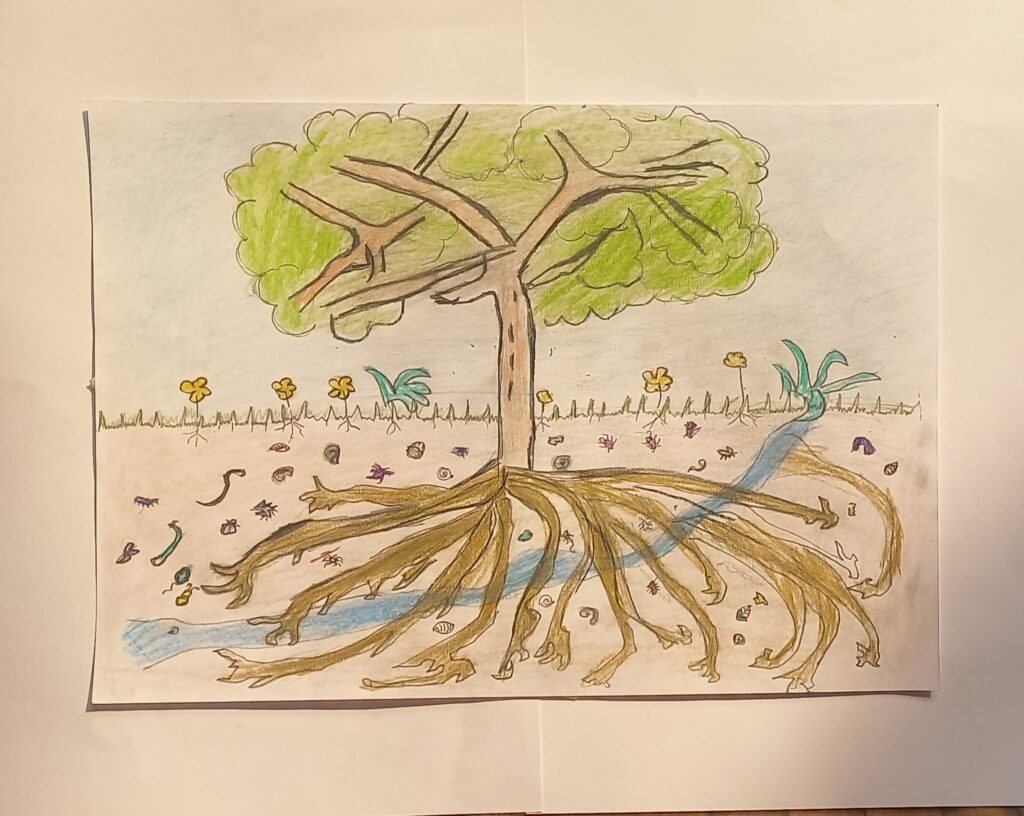
“Native Trees, Productive Soil”
Edison Aguaiza’s artwork, “Árboles nativos, suelo productivo” (Native Trees, Productive Soil), illustrates the importance of native vegetation. Indeed, native trees are uniquely adapted to the local context. Their deep roots hold soil together to prevent erosion, retain more water to help soil fertility during dry spells, and enriches soil naturally, reducing dependence on harmful chemicals.
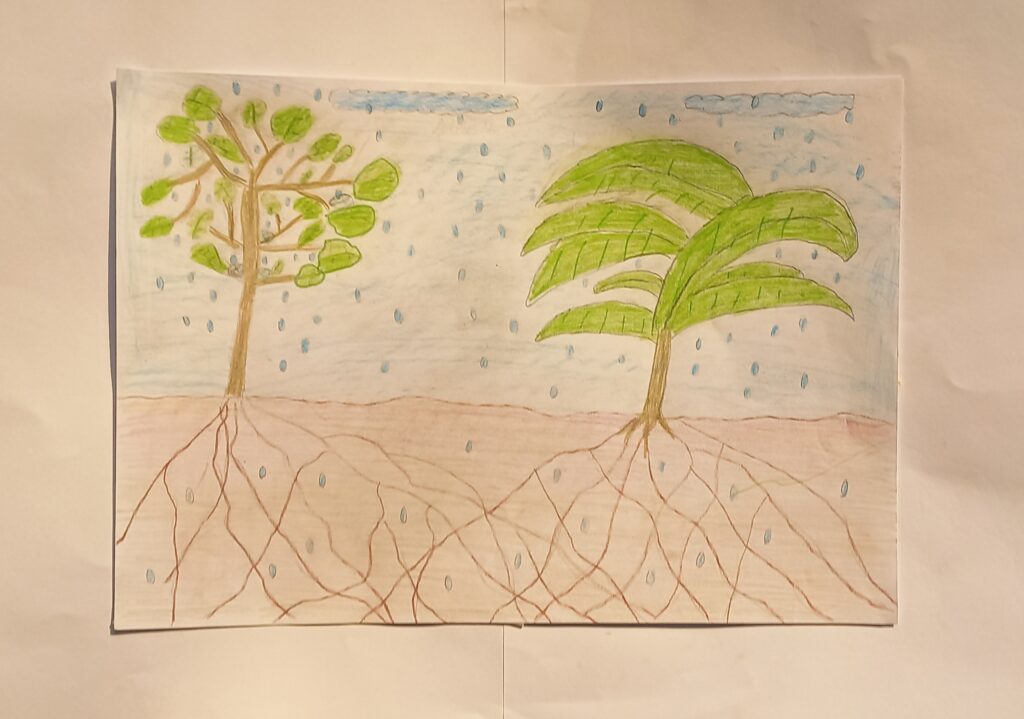
International Mountain Day: Celebrating Nature’s Grandmothers
Guardians of the world, mountains are the giant life-givers that shelter over 15% of the global population. From their heights, rivers are born, providing water to half of humanity, and on their slopes, food grows to sustain entire cities.
Mountains are the grandmothers of nature. They bear witness to the passage of time and silently struggle to stay alive.
For Ecuadorian youth, mountains are not distant landscapes but part of their identity, their livelihoods, and their future. On International Mountain Day, they shared poems and drawings to honor these mountains, thank them for their shared abundance, and remind us that their presence is far more than just a landscape.
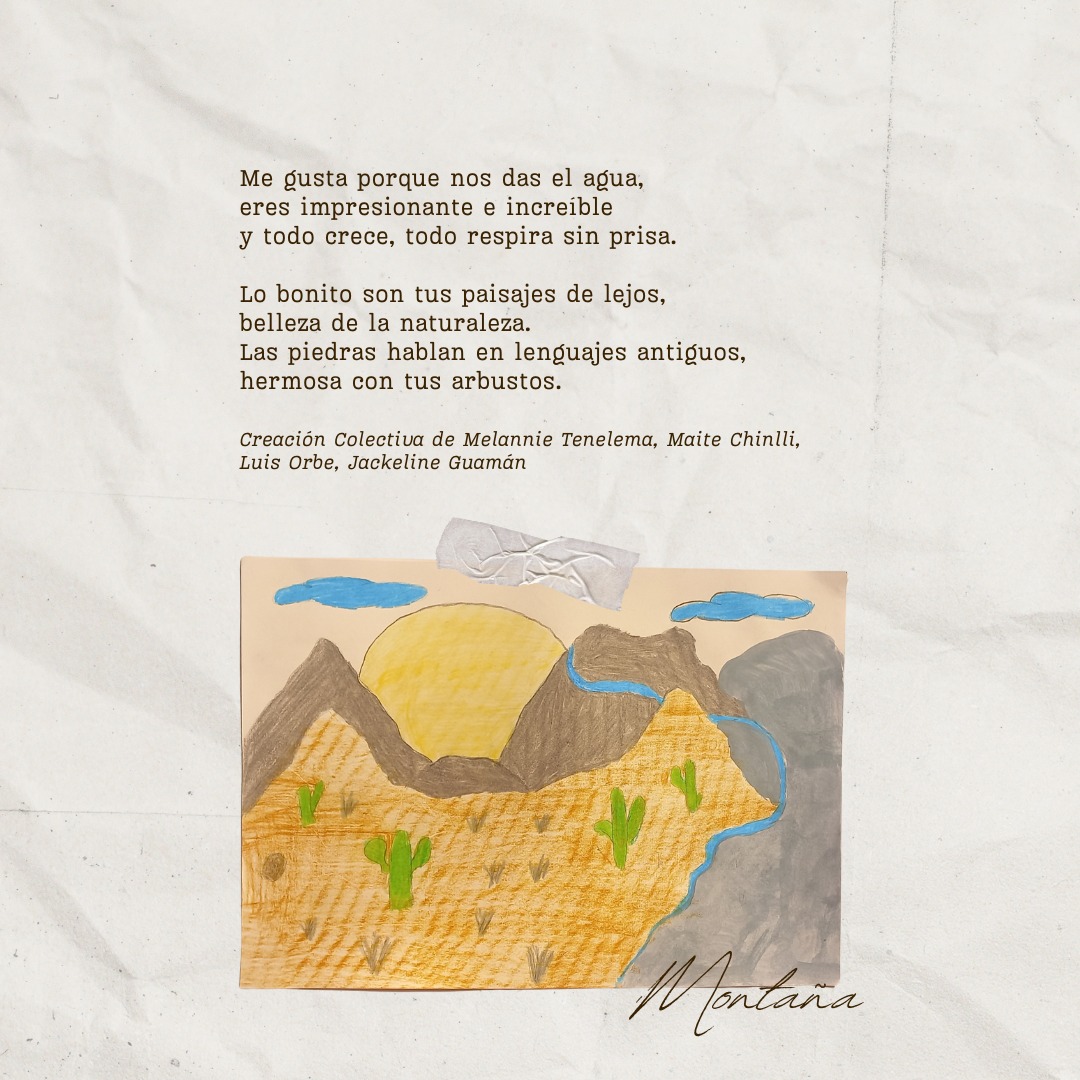
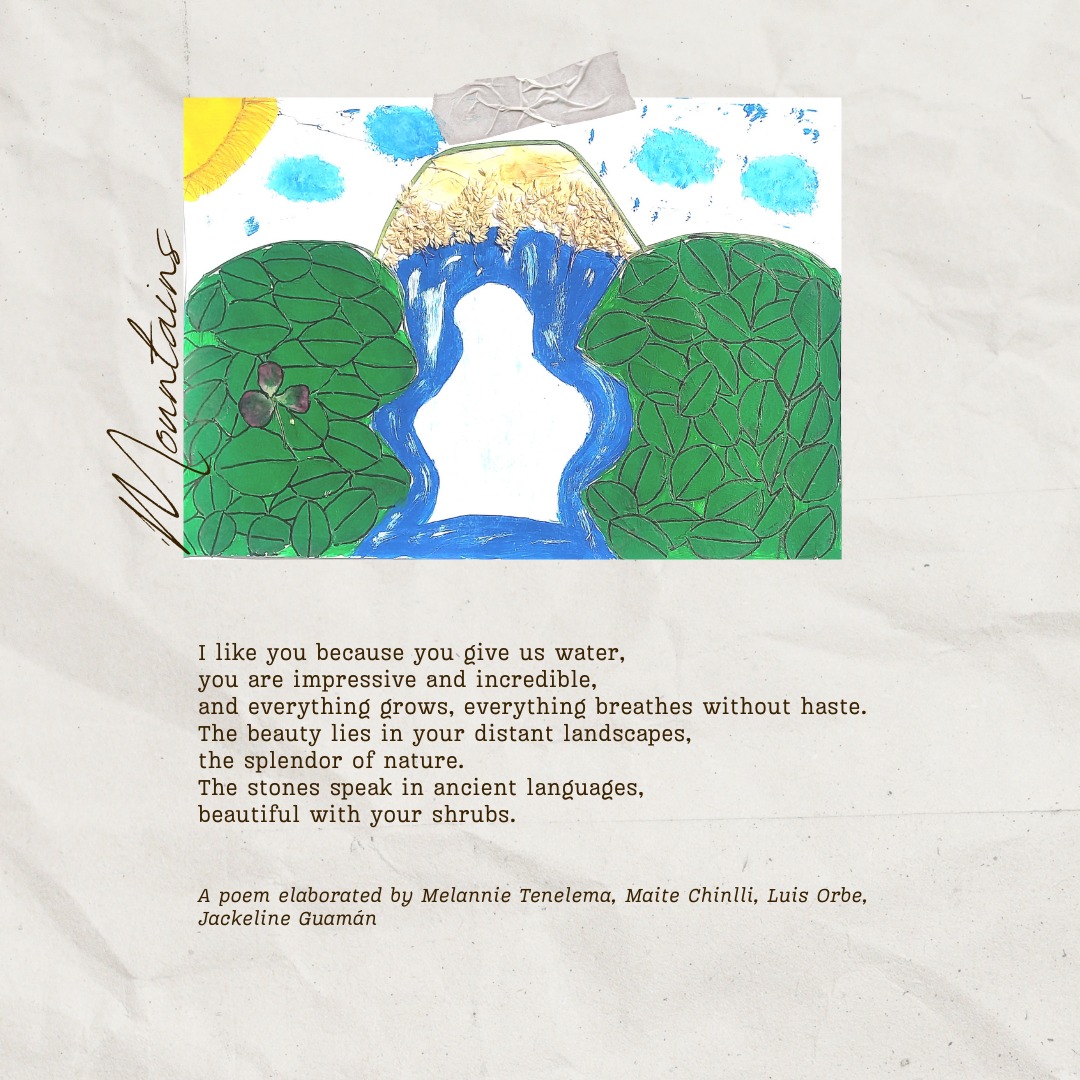
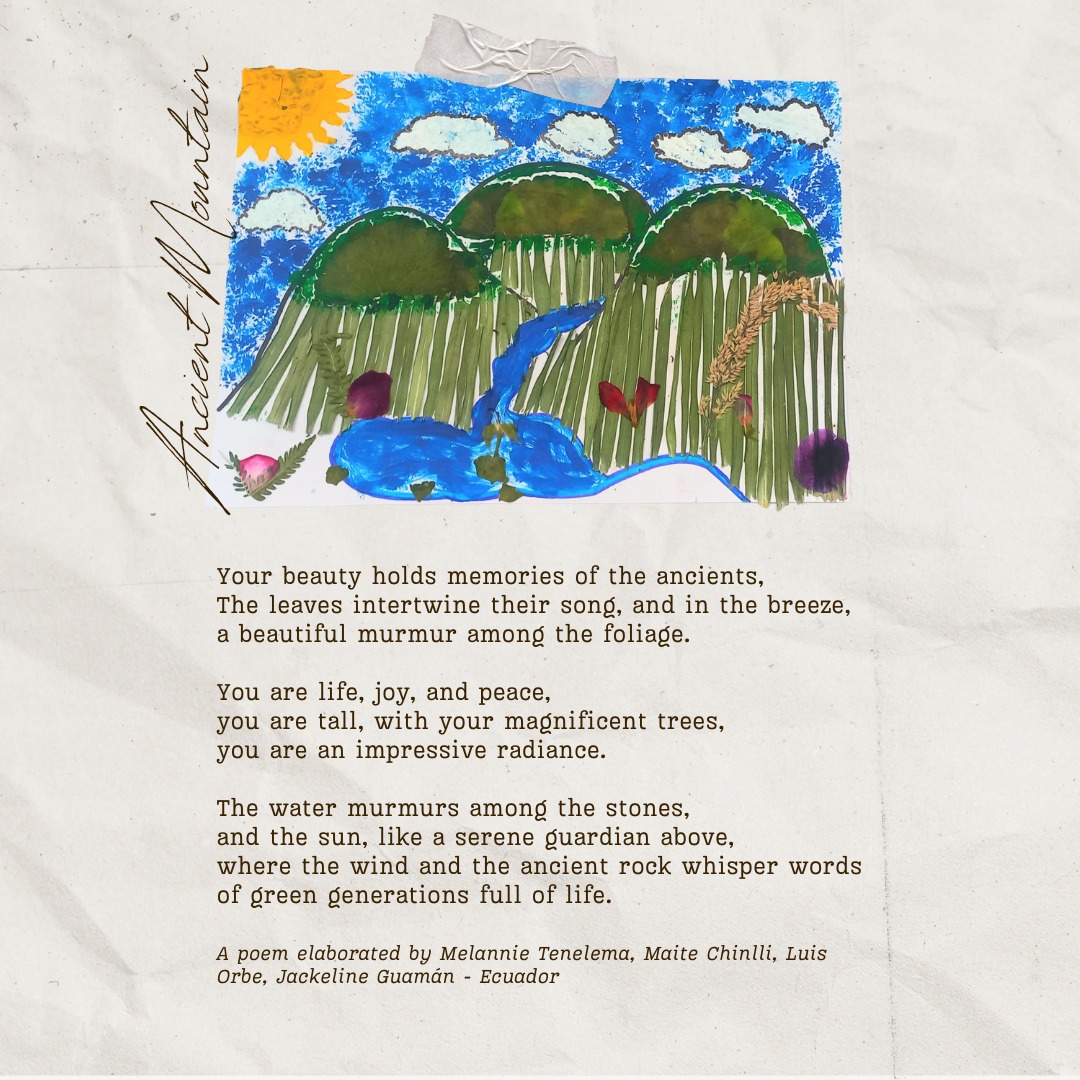
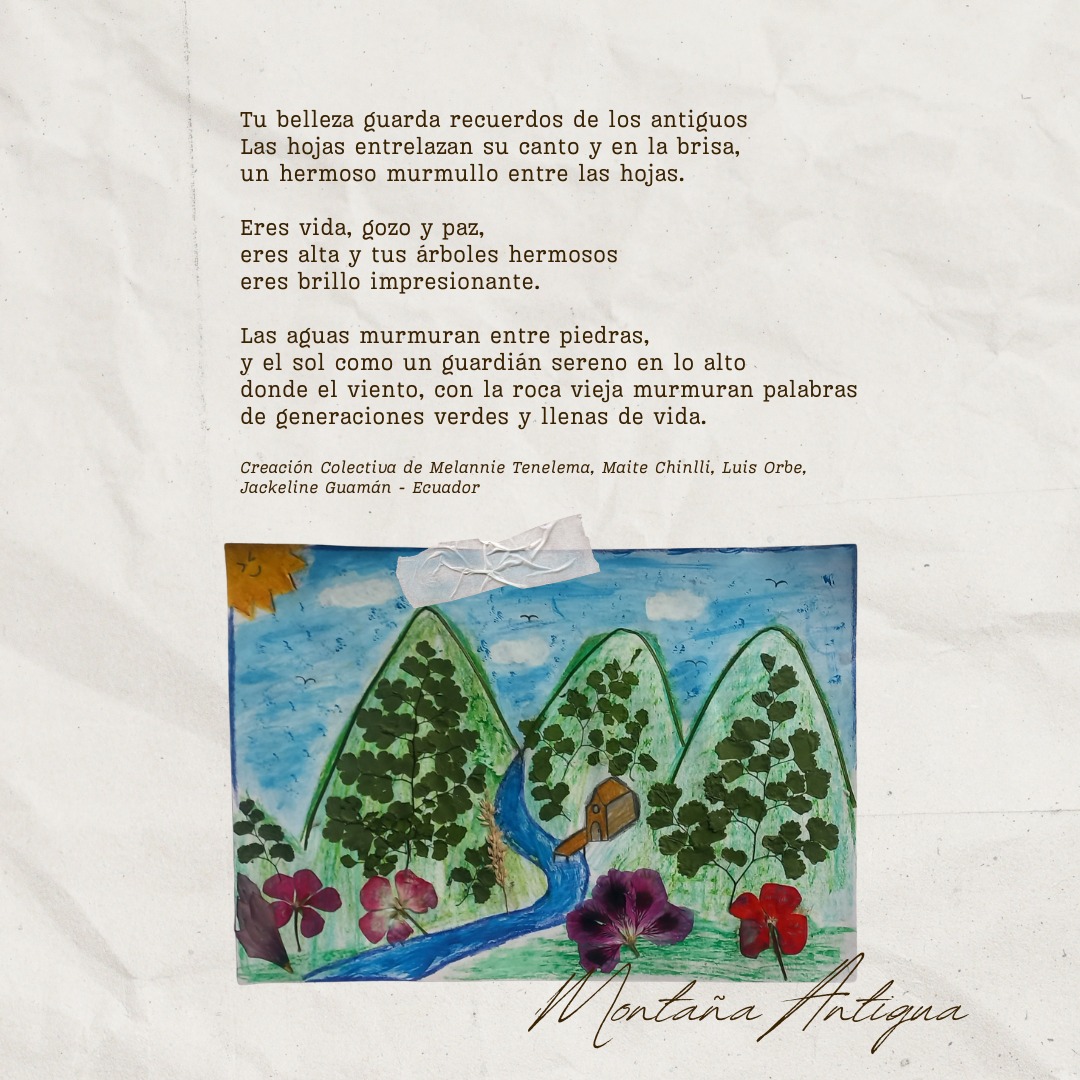
Healthy land, thriving life. The choice is ours.
These drawings are more than creative expressions. Ecuadorian youth remind us that healthy soil, clean water, and thriving mountains are essential to a sustainable future. They challenge us to move away from destructive farming practices and honor the wisdom of nature.
Through the eyes of youth, we see the solutions: planting native trees, avoiding agrochemicals, and protecting mountains, water and soil. Hope grows where we take care of the earth—and that change begins with us.
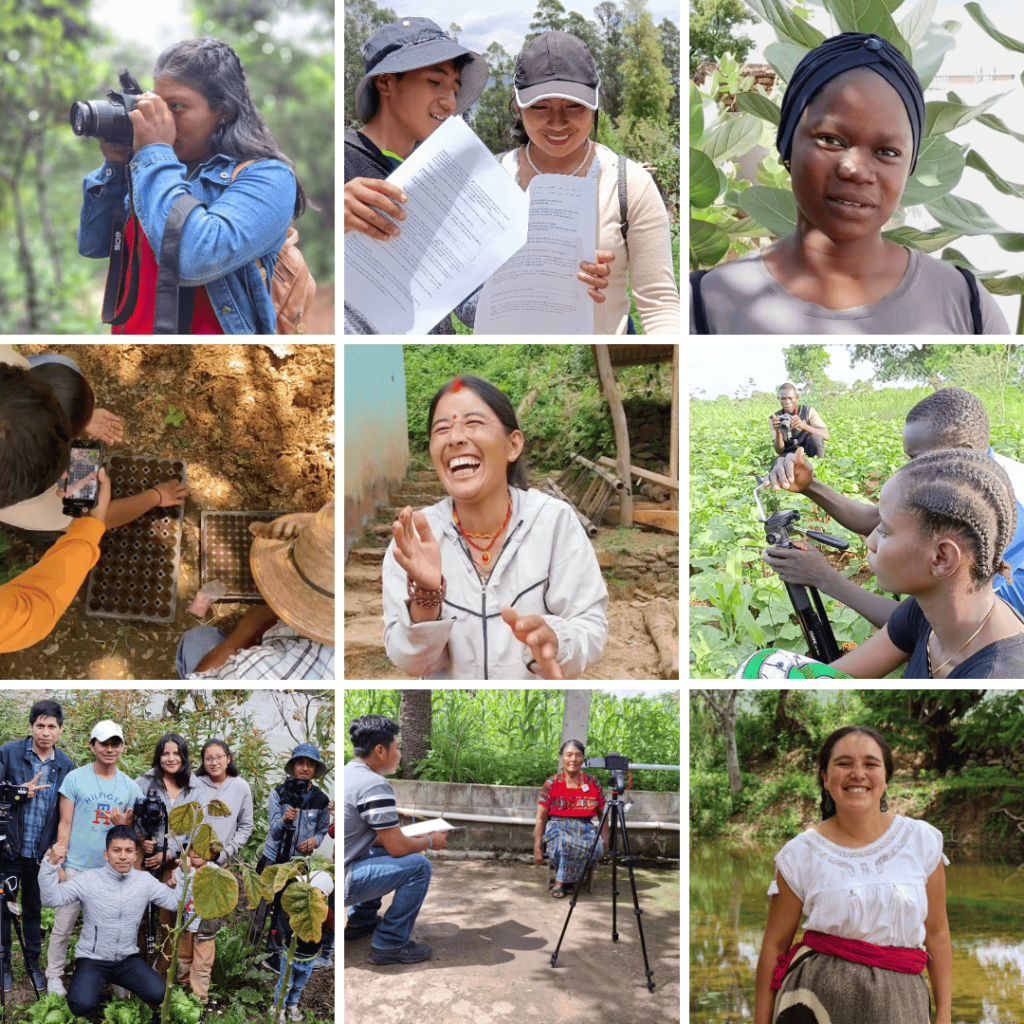
Invest in youth in the Global South to spread real solutions
Your gift will help expand the Youth Storyteller Program and strengthen youth’s capacity to build regenerative and equitable farming and food systems, rooted in local knowledge and culture.

